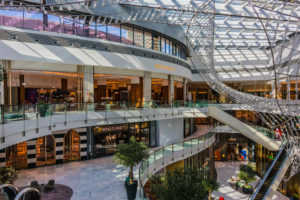As the spike in COVID19 cases around the world has been observed in the past few months, the authorities of many countries have implemented nationwide lockdowns to lower the number of cases in the coming days. This strategy to cope with COVID19 has been effective in some countries but many affected people have grown restless.
As the lockdowns have continued, many businesses have incurred losses and faced severe financial hardship. One such example is the Simon Property Group, the biggest mall retailer in the U.S. This retail business has seen losses of 20.2 percent in the last quarter of March as the closure of their malls became a reality to minimize the COVID19 spread.

The company’s U.S. properties were closed on March 18 as the concerns regarding the COVID19 pandemic grew. This closure was causing Simon Property Group financial difficulties, so it has been planning to reopen some of its properties as local governments have eased restrictions. They have already reopened 77 malls in the first week of May. The retailers are considering implementing restrictions to contain the COVID19 spread, such as six-feet social distancing, enforcing reduced capacity, limiting open hours, and handing out masks to visitors.
After the decision to reopen its malls, Simon Property Group’s shares increased dramatically by more than 9%. As the market closed on the Monday after the announcement (May 11), Simon Group reported quarterly revenue of $1.35 billion, beating the estimated figure of $1.33 billion.
David Simon, the chief executive of the Simon Property Group, said that he had been satisfied by the outcome from other malls that were reopened. But people, according to a PYMNTS survey, are as eager as expected for the malls reopening because the fear persists that they might contract COVID19.
Simon has been advocating the reopening as a move to help people and local governments, “because frankly, they depend on our sales taxes,” he said, according to CNBC. But the reopening of the malls is seen as a way to tackle Simon’s own financial problems. Retail tenants have resisted paying rents to the mall owners. Only 15% of the rents were paid in April, and May is looking worse.
Gap, the largest inline retail tenant in Simon malls, recently announced that it was suspending paying the rents to save $115 million a month. Gap’s rent comprises 3.5% of the total base minimum rent. Other large tenants have also contributed to declining in rents paid, including retailers like Victoria’s Secret owner L Brands, PVH, the owner of Calvin Klein, and Coach parent Tapestry. It seems that opening the malls again is necessary to enable tenants to restart paying their rents.
Retail malls like Simon’s are facing a difficult situation with the COVID19 outbreak. The mall owners have reduced staffing, frozen hiring, and cut operating expenses and corporate spending in order to reduce their expenses. But as the reopening of malls continues, the shares of the company have recovered and prospects for the future look brighter.
